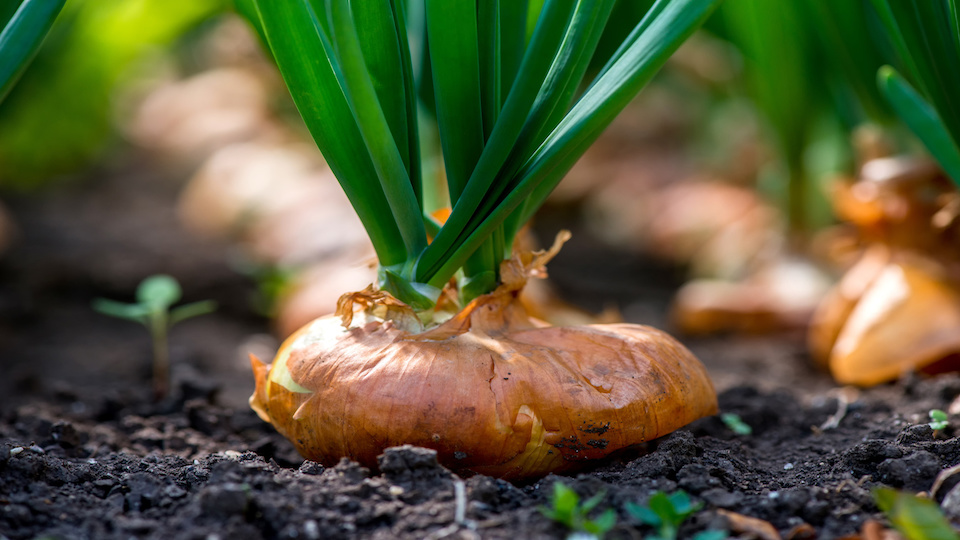Though onions are usually easy to grow, gardeners who want to plant onions face a universal problem known as bolting that can plague even the most skilled gardener. So what is bolting and how do you keep it from happening to your onions? Read on to find out.
What is bolting?
You may have heard the term bolting used in reference to flowers or vegetables before but still don’t know what it means. It is important to understand what bolting is and how to prevent it from happening to your plants. Bolting is when and onion goes to seed too early before the bulb is ready for harvest. Plants will usually get leggy because all of their energy is being utilized to produce the flower and the seed rather than the onion, creating a stunted product that must be eaten immediately and cannot be stored for future use.
What causes bolting?
Bolting can be caused by a number of factors, but extreme temperatures are the primary triggers. When an onion experiences extreme cold, or extreme heat, it is put under stress that causes it to go into the natural process of reproduction before it expires. Here are a few other causes of onion bolting.
Temperature fluctuations
Wide temperature fluctuations, such as a cold snap and then a rapid warm spell can cause the onion to go dormant and then grow and then become dormant again. Too many wide variations in temperature (usually around two or more dormant/growth cycles) will result in bolting.
Bolting can also be triggered by a late frost once the onion has started growing or a period of intense heat in the middle of the summer.
Loose soil
Onions need well-compacted soil to grow properly and produce a hearty bulb. Loose soil can cause the plant’s roots to become disturbed which leads to bolting.
Over-fertilization
When you over-fertilize onions during their early stages of development, they can grow too vigorously and bolt as a result.
How to prevent bolting
It is essential to pay attention to expected weather patterns and plant onions at the right time according to their variety. However, nature doesn’t always cooperate, so it is essential to have a backup plan in place to protect your onions.
Cover onions during cold weather
If you know that an early season cold weather wave is on its way, be sure to cover your onions with a breathable fabric such as horticultural fleece. This will allow them to absorb more heat from the sun and keep them from getting damaged by potential frost.
Keep them well watered in the heat
Keeping onions cool is a little more difficult than keeping them warm, as mid-season heat waves usually last longer than those unexpected cold snaps in spring. It is essential to keep your onions well watered to combat heat-related evaporation and keep the air cool around your plants. Your onions may need to be watered a few times per day, but make sure to give them a good drink in the morning.
Plant at the right time
This will vary depending on the variety, but it is important to plant your onions at the appropriate time to prevent bolting. Most varieties need to be planted 4-6 weeks before the last expected frost date, so keep a close eye on the calendar and have your seeds or transplants ready to go.
Snip the buds
This step won’t prevent your plants from bolting (as it is already too late if buds are forming), but it can help you salvage most of your produce. If you notice that an onion has begun to form flower buds, snip them off to prevent the bulb from splitting. Harvest and eat those onions right away.
Remember: You can’t control the weather and sometimes Mother Nature has a different plant for your garden than you would like. Preventing all bolting every year is impossible, and sometimes you will just have to face the hard reality.
Don’t get discouraged! Simply dig up the onions that have bolted and enjoy them right away. They are still edible and will taste fine, so don’t let them go to waste. Everyone (even professional growers) experience the frustrations of onions going to seed. The trick is to try again. Don’t write off growing onions just because you had one unfortunate season. There’s always next year!
-Taylor Ramsey




